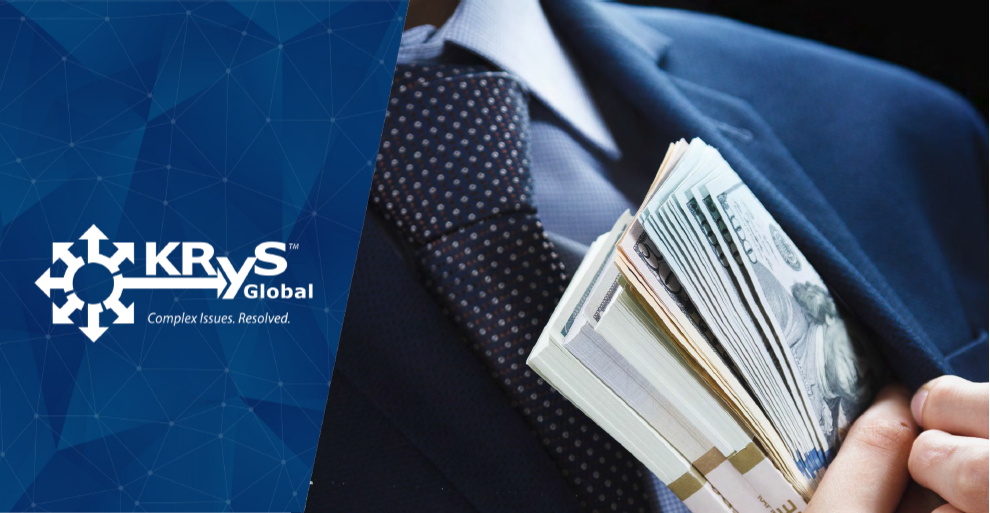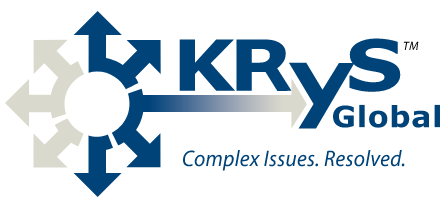

Since 2010, the Global Law Experts annual awards have been celebrating excellence, innovation and performance across the legal communities from around the world.
posted 3 years ago
Originally posted on Corporate LiveWire
Written by Angela Barkhouse in August 2018
If fraud or misconduct is discovered, it can have debilitating effects on a company; on its profits, consumer confidence, increased costs including legal costs, and in severe cases its reputation and the cutting of its workforce. In severe cases of fraud, the company will often be insolvent as a result. In cases where a company discovers that the perpetrators have used offshore corporate vehicles to conceal their proceeds of fraud a common belief is that with bank secrecy and there being little public information available, there are few options to investigate the fraud and recover the assets.
A common or first approach taken by many will be to file a criminal complaint against the company in their country; seeking to rely on the criminal justice system to investigate the fraud and recover the proceeds. However, the reality is that when investigations touch upon offshore jurisdictions, it is often placed into the “too difficult” box with enthusiasm from law enforcement agencies quickly waning. The title of this article, was iterated to me during a conversation when I spoke to a foreign law enforcement agency on the ability to recover stolen funds. This is in part due the common misperception that funds that have passed through offshore entities will no longer be recoverable.
The use of insolvency processes and/or the court appointment of a receiver (particularly in jurisdictions that follow common law) can be particularly advantageous in investigating cases of fraud, corruption or misappropriation of assets. Whilst perhaps not foremost in the minds of many, it is a tried and tested method, and is appropriate for both insolvent and solvent companies. As in the case of a solvent company, it would be considered in the public interest for the company in question to be wound up, having been complicit in, or used as a vehicle, for fraudulent misconduct. In addition, as a stakeholder in the liquidation, fraud victims have a greater level of insight into the investigation and strategy being employed. The Liquidator will, as far as possible, try to keep stakeholders apprised and consult with them generally, or through an elected Committee of stakeholders.
Thus, if a fraud has been perpetrated the applicant or victim can seek to have a company wound up on a “just and equitable basis” by the Court, particularly if it believes that it is necessary to prevent the dissipation or misuse of the company’s assets. Once a Liquidator is appointed he can secure the remaining assets for the benefit of creditors and commence an investigation into the circumstances of the fraud. Often an application for a just and equitable winding up can be made ex-parte (without the Respondent’s knowledge). Such an application is often used to avoid any “tip off” to the fraudsters which can lead to the further dissipation of assets.
The tools available to Insolvency Practitioners may well be one of the most powerful weapons available to fraud investigations. On appointment Liquidators are afforded wide ranging powers under statute and with the authority of the Court, including those of examination afforded to him under statute, compelling Directors and third parties to respond to requests for information which may identify wrong-doing. Once the investigation has been completed the Liquidator also has a raft of extraordinary “super-powers” to challenge transactions which have not benefited the Company, such as gifting property, paying of connected party debts, and fraudulent trading. These remedies are only available within the context of a liquidation.
Being able to investigate fraud will often require access to original transaction documents and informal communications like emails, as well as documents relating to ancillary transactions, to assess the purpose of the transaction or the ultimate destination of funds. Liquidators have the power in their capacity of Officers of the Court, to compel property and records to be handed over, and also require the co-operation of all former directors and officers of the company. This extends to persons employed by the company in a professional capacity, for example registered agents, administrators or investment managers (in the case of investment funds) who can be a key source of information used to trace and recover assets.
Indeed, it is often the case that when seeking to recover stolen assets, there will be uncooperative third parties or incomplete records. The Liquidator’s abilities to obtain third party information through direct access, and therefore identify assets, can be achieved quicker than those of criminal investigations by many months, perhaps due to a lack of dual criminality provisions between States, the lack of a bilateral mutual cooperation treaty, or a lack of resource on one side of the cooperating law enforcement agencies.
In one example, allegations of a multi-million Ponzi scheme in the UAE had surfaced and various criminal complaints had been submitted but little progress had been made in investigating the wrong-doing or in recovering any funds. Indeed, a number of default judgements for non-payment of debts had been awarded but no recoveries had been made and any criminal investigation was moving at a frustratingly slow pace for the victims of the fraud.
Three of the investors submitted an application to the BVI Court for a just and equitable winding up of the company, appointing me as a joint liquidator to investigate the wrongdoing and trace the destination of certain of the funds. This application was made swiftly, and within a few weeks of the appointment we had recovered US$4million from a UAE brokerage and identified further bank accounts and potential assets in other onshore jurisdictions. Of even greater benefit to those investors that sought our appointment was the fact that the Liquidator’s fees are able to be paid out of the liquidation estate, saving the investors a significant amount in legal fees whilst being able to recover assets for the benefit of the creditors.
When pursuing stolen funds, it is important to act swiftly in order to gain control over, and secure assets whilst an investigation is undertaken to ascertain what other avenues of recovery may be pursued. KRyS Global’s team have acted for corporations, governments, and individuals assisting in all phases of the asset tracing process in order to recover misappropriated assets or debts located in offshore jurisdictions. The team has complementary experience in the civil, criminal and regulatory aspects of fraud investigations and intervening at an early stage in order to avoid further damage and reputational risk for clients.
Stay informed with the latest legal developments at Global Law Experts
Author


No results available
posted 38 minutes ago
posted 41 minutes ago
posted 42 minutes ago
posted 43 minutes ago
posted 44 minutes ago
posted 46 minutes ago
posted 48 minutes ago
posted 22 hours ago
No results available
Find the right Legal Expert for your business
Global Law Experts is dedicated to providing exceptional legal services to clients around the world. With a vast network of highly skilled and experienced lawyers, we are committed to delivering innovative and tailored solutions to meet the diverse needs of our clients in various jurisdictions.

Send welcome message